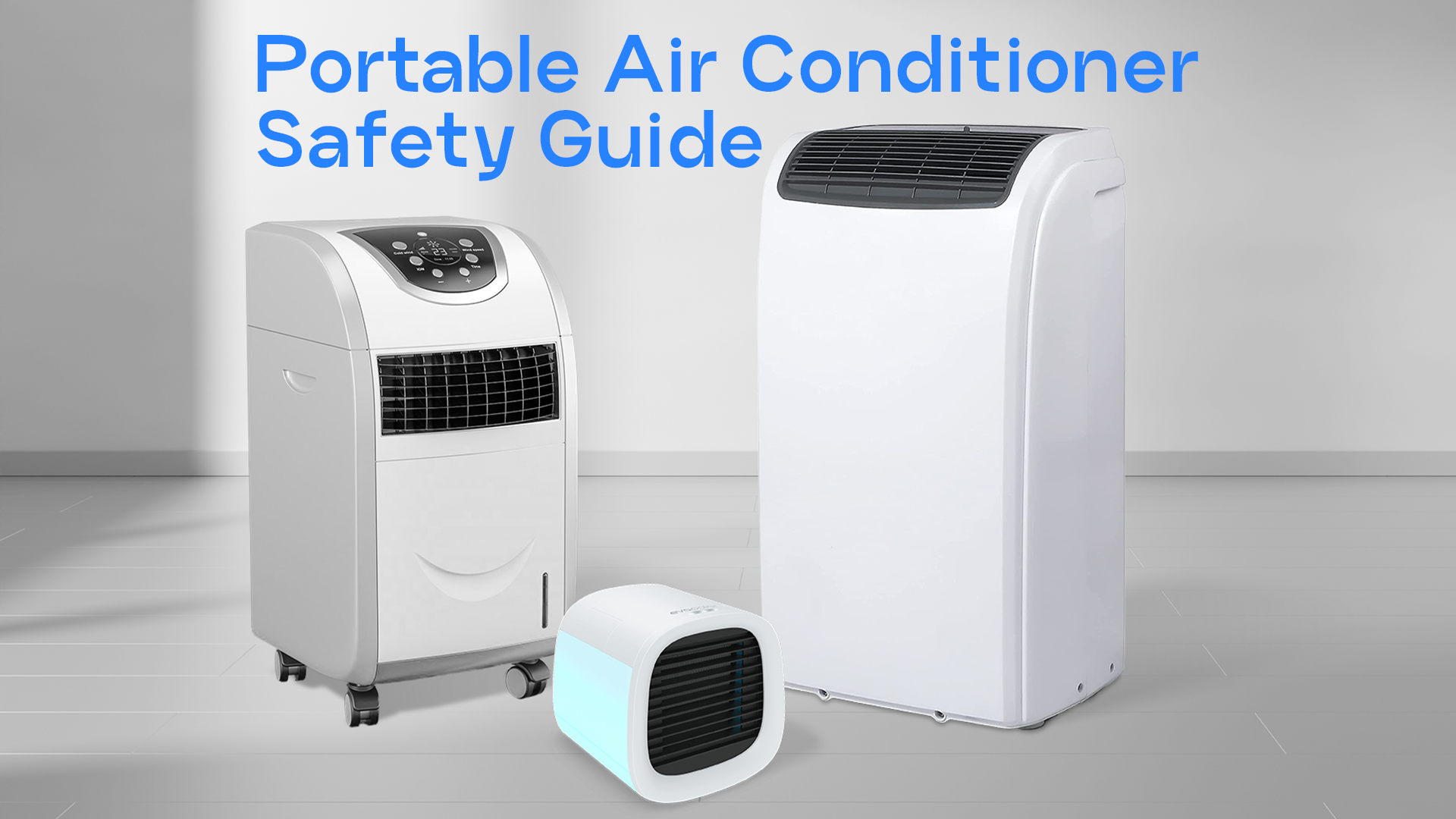Portable air conditioners are a great way to cool down your home during the summer, but using them safely is essential. Even the most modern and elaborate devices come with specific rules and restrictions. Would you like to stay cool, comfortable, and safe?
After almost a decade in the world of personal cooling and three best-selling devices, we decided it was time to share our knowledge and savoir-faire with the world. Hence, we have come up with the most important portable air conditioner safety tips!

evaCHILL
The most effective cooling device
Are Portable Air Conditioners Safe to Use?
Portable air conditioners are safe to use, just like many improved devices. However, any electrical appliance requires safety measures. If you are looking for the safest and the most convenient option, consider using an evaporative air cooler instead of a portable air conditioner.
Evaporative air coolers by Evapolar are less dangerous on many levels — they use way less energy, they don't use freon-like liquids, and they don't contain any easily removable details. These powerful devices are also safe for your skin and mucous — since they don’t remove humidity from the air, they don’t dry out your mucous membranes.
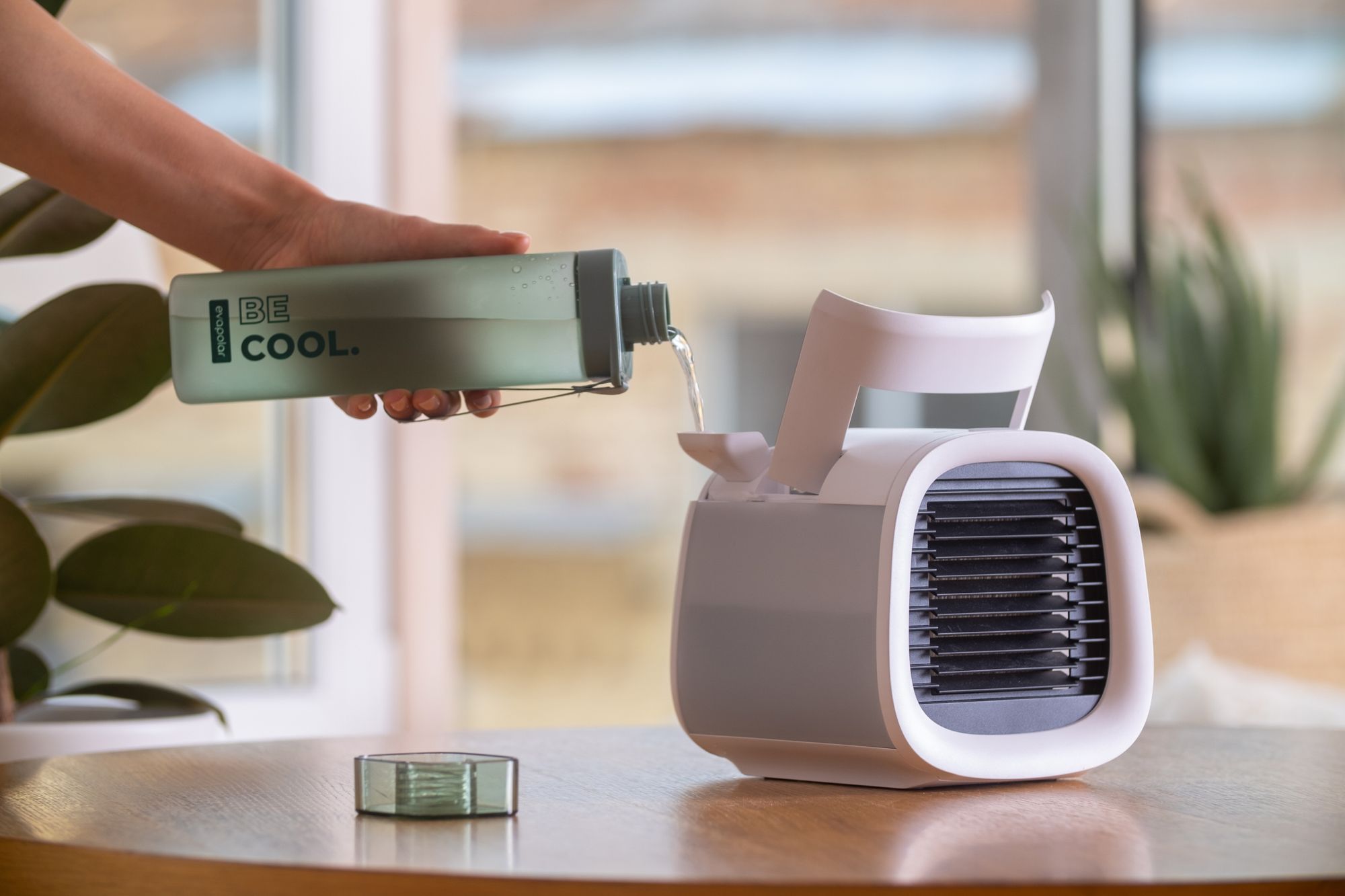
10 Safety Tips for Using Portable Air Conditioners
1. Read the instructions
Always read the manufacturer's instructions carefully before using a portable air conditioner — they exist for a reason! You will find the safety measures and the best practices to ensure you get the most efficient cooling.
2. Ventilate
Make sure the air conditioner is in a well-ventilated area, and never cover the vents with anything. The first rule of portable AC safety is that they need to exhaust the hot air outside.
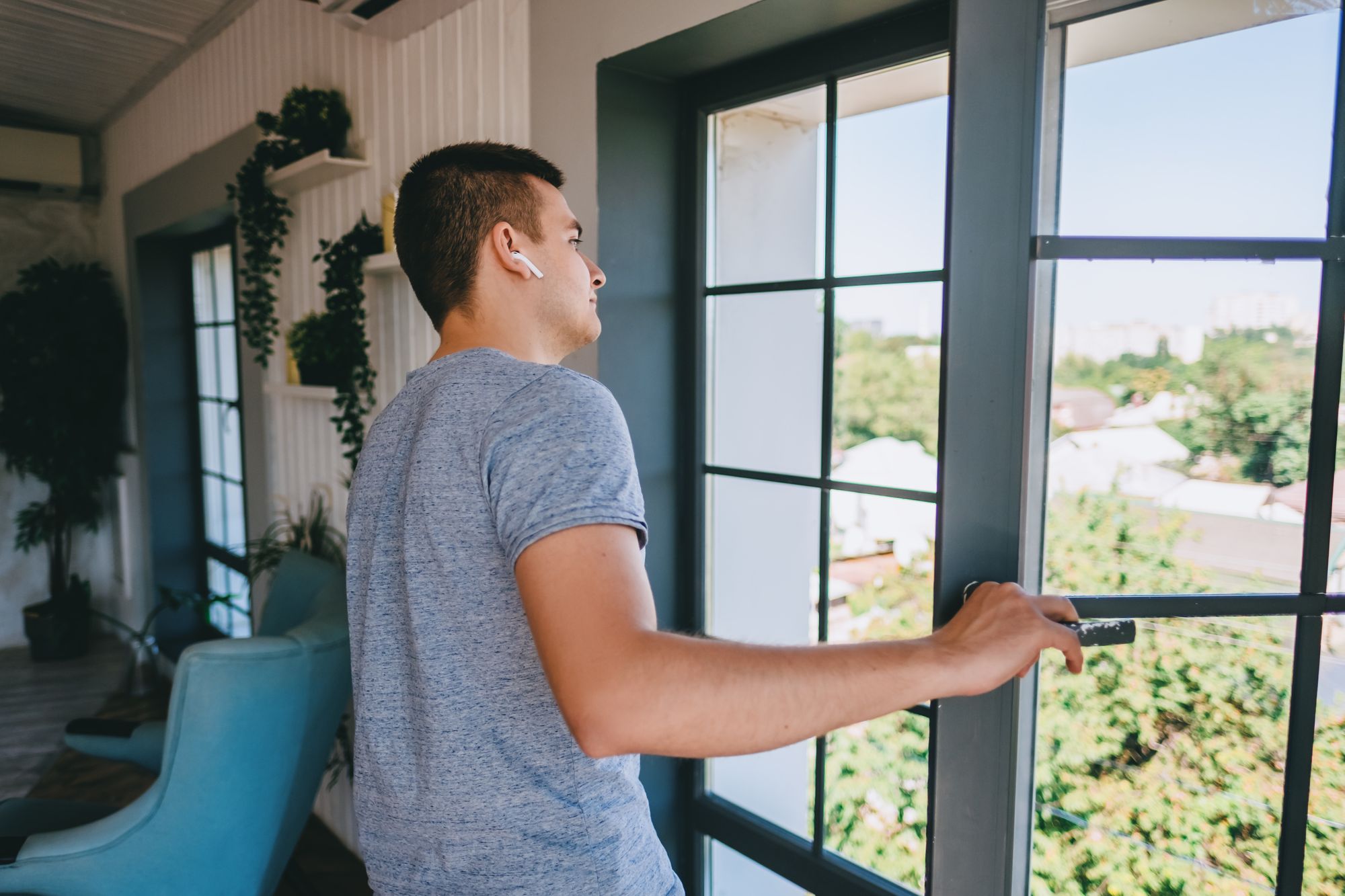
3. Place the device in a safe spot
Do not place the air conditioner near a fire escape or where it will block traffic.
4. Keep children and pets away from the air conditioner
Always check the instructions for the minimum age to operate the device.
As for your furry friends, they indeed enjoy the cool air, especially in summer. However, it's better not to leave them unattended with the portable air conditioner.
Evaporative air coolers are a much safer option for pets!
Also, they provide gentle, natural cooling that won't result in the infamous air conditioning sickness — one of the most common dangers of portable air conditioners.
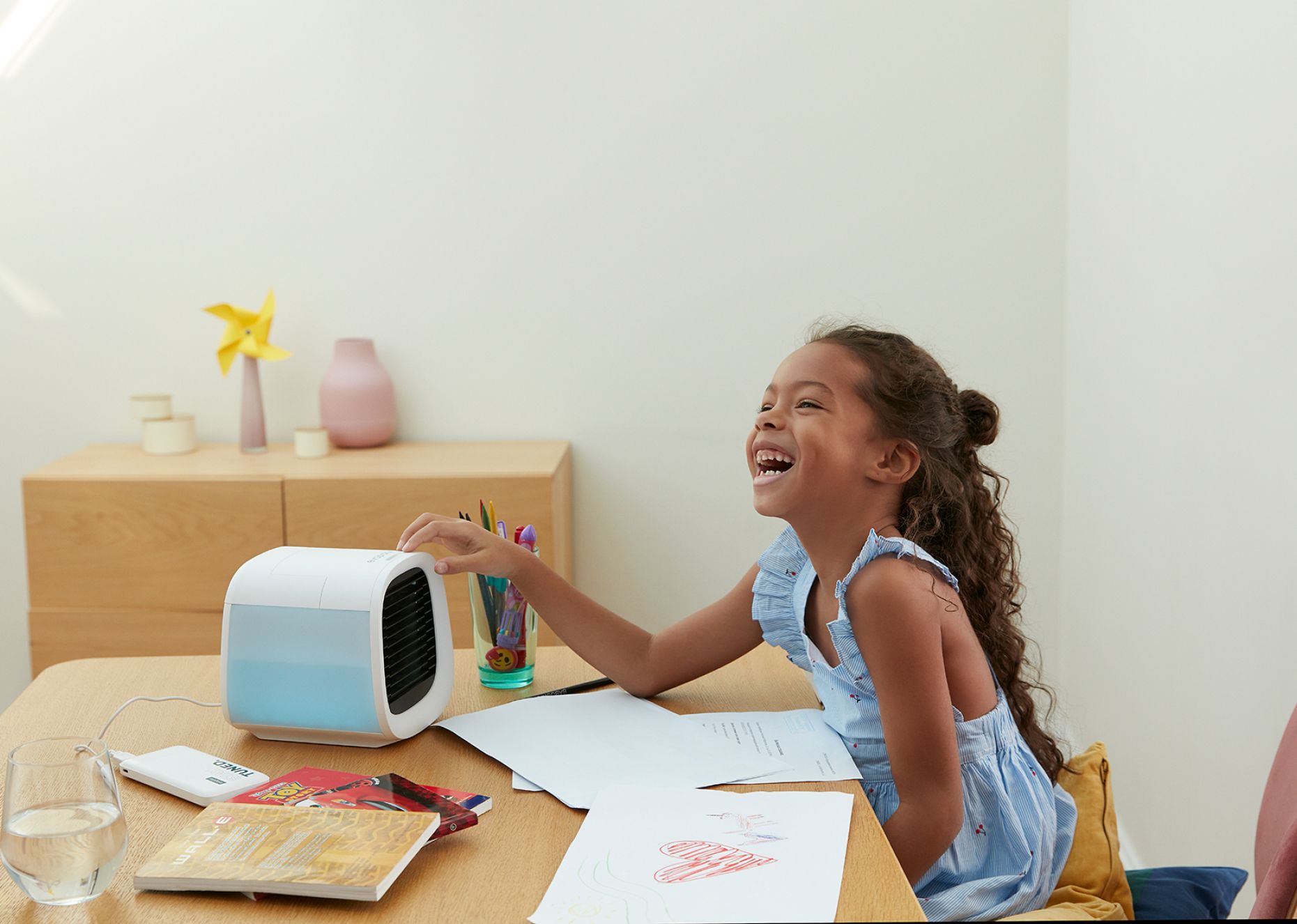
5. Never put the portable air conditioner in a closed space, such as a closet
This can be extremely dangerous because the appliance will start overheating and quickly catch on fire.
6. Use an extension cord if necessary, but choose the right one
If you must use an extension cord with your portable air conditioner, make sure it is a heavy-duty cord designed for outdoor use. The thicker the cord, the better — that way, you will reduce the risk of electrical fires.
Some devices cannot be used with any type of extension cord, so make sure to double-check it in the safety manual.
How to choose an extension cord? This article will take you through the details of how to get an extension cord for your needs.
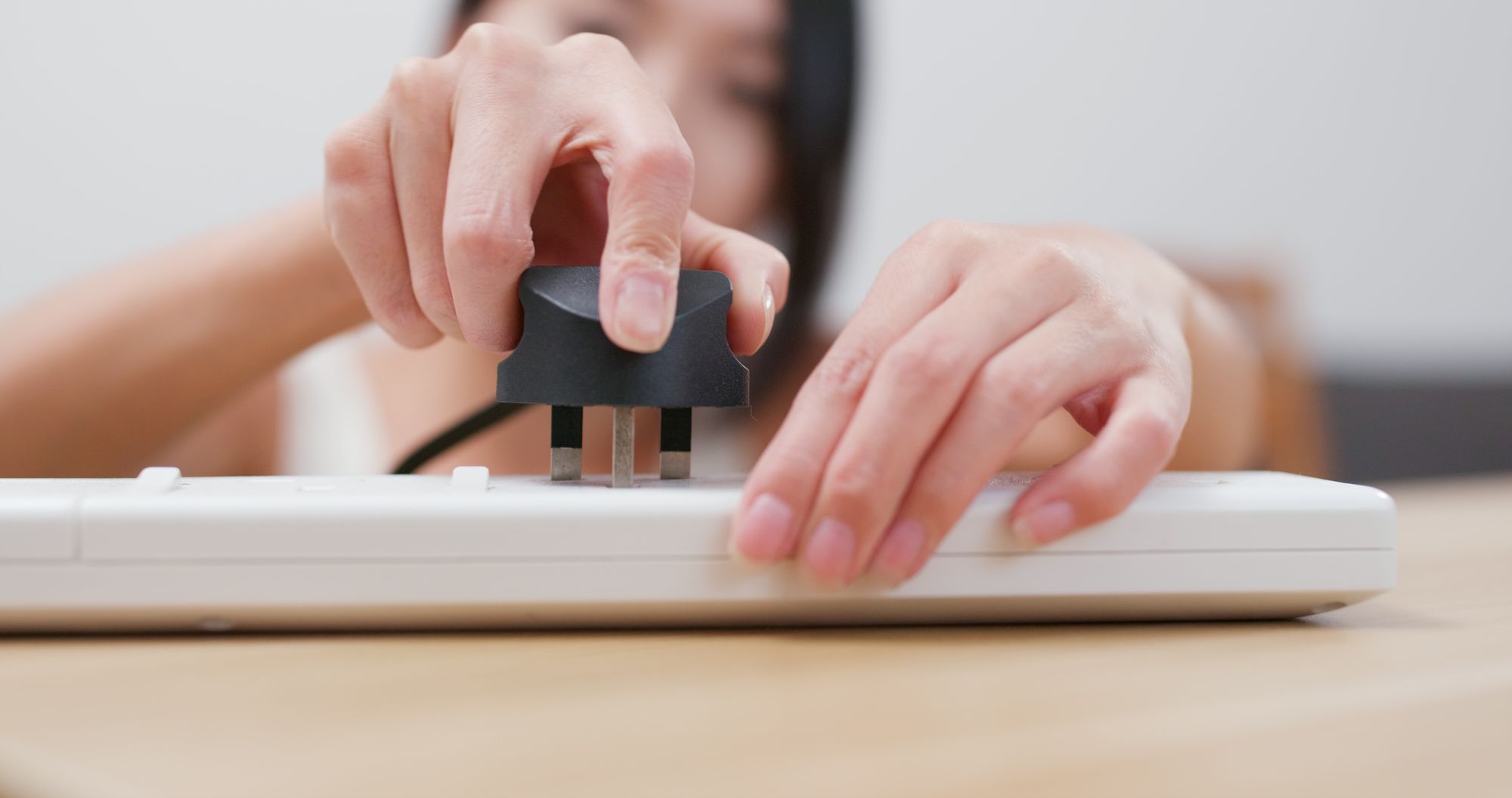
7. Check for damages before using the portable air conditioner
Before each season, check your portable air conditioner for any cracks or damages. If you notice anything unusual, do not use the device and contact customer support immediately.
8. Unplug when you leave home
Always unplug the air conditioner when not in use. If you plan to be away for an extended time, it's better to unplug and store it in a dry, safe space.

9. Do not use a portable air conditioner with a generator
Using a portable air conditioner with a generator can lead to fires and other dangers. The generator's size, age, and power can be incompatible with the AC — if your generator isn’t powerful enough to handle the AC, don’t plug it in.
If your generator wattage is too small for the portable air conditioner, you risk damaging your generator, AC, or both.
10. Regularly clean the device
To ensure optimum efficiency, clean your portable air conditioner regularly. This will also help you spot any damages early on. A clean device means clean air, and with proper maintenance you ensure your family enjoys bacteria-free air.
Ensure you follow the maintenance instructions — a well-maintained device will serve you for a long time! If you are missing your instruction, go back to our old friend Google, or use a website with a database of safety instructions.
If you experience any problems with the air conditioner, stop using it and contact the manufacturer immediately.
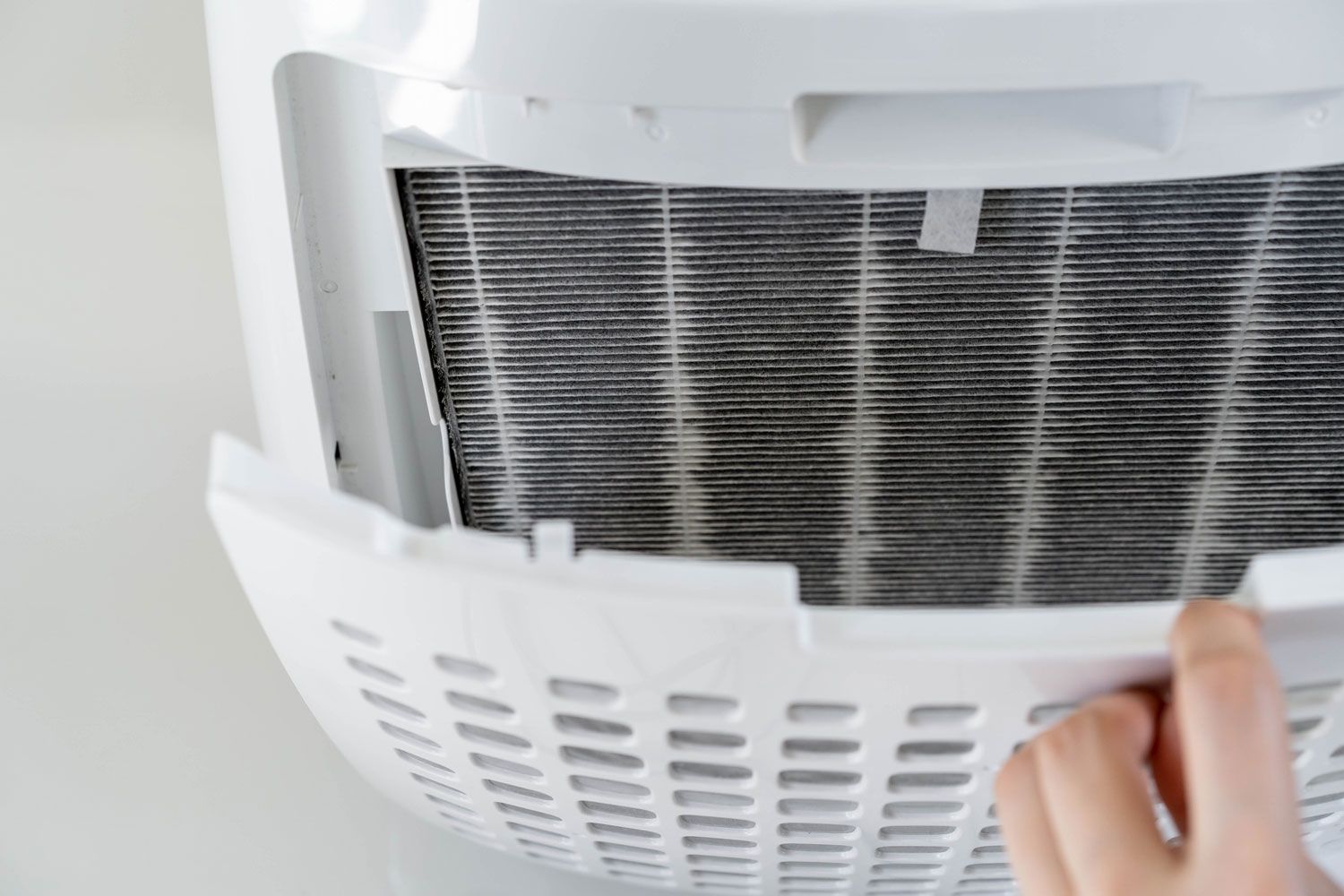
Can A Portable Air Conditioner Cause Carbon Monoxide Poisoning?
No, a portable air conditioner cannot cause carbon monoxide poisoning. Carbon monoxide is produced when gasoline, wood, and coal burn. Portable air conditioners do not use any of these fuels.
Do Portable Air Conditioners Use Ozone?
No, portable air conditioners do not use ozone. Ozone is a gas used in some industrial applications to clean the air. However, it is not used in portable air conditioners.
Safety Tips for Portable Evaporative Coolers
Evaporative air coolers cool the air by taking the water through pads and exhausting cool air. Evaporative air coolers require less maintenance than portable air conditioners and are safer to use.
However, they also come with safety tips!
1. Read the instructions
We had to repeat this one! In the instructions, you will also find recommendations on maintenance and cleaning, which will help you keep the device working correctly.
2. Keep the cooler clean (inside and outside)
Remove the dust from the air grills regularly. This is for proper functioning and safety — you don't want to inhale dust! A build-up of dirt will make the cooler less effective and can also be dangerous for your health.
3. Change the cartridge or the filter when recommended
A clean cartridge guarantees your safety and the cooler's longevity! If your device uses a cartridge, like Evapolar, then replace the cartridge every 3 to 6 months, depending on how often and where you use the air cooler. For other air coolers, refer to the instructions, and you won’t get it wrong.
4. Don't use the cooler near water
Keep the evaporative air cooler at least 3 feet away from any water source, such as a swimming pool, to avoid electrical hazards. Don’t let pets or kids too close to the device.
5. Ensure proper storage
If you have decided to store your air cooler for a long time, clean and dry the device first. Then, place the air cooler in appropriately sized packaging for storage. Store the device in a dry space at room temperature.
6. Use clean water only
Use ONLY clean water in your air cooler. Do not add any scents or essential oils, and use filtered water. If you don’t use the cooler for more than two days, don’t leave the water inside. If you forget, remove the stale water before using the cooler again.
Evapolar: The Safest Portable Cooling Option
If you are looking for a portable cooling device that is both safe and effective, look no further than Evapolar!
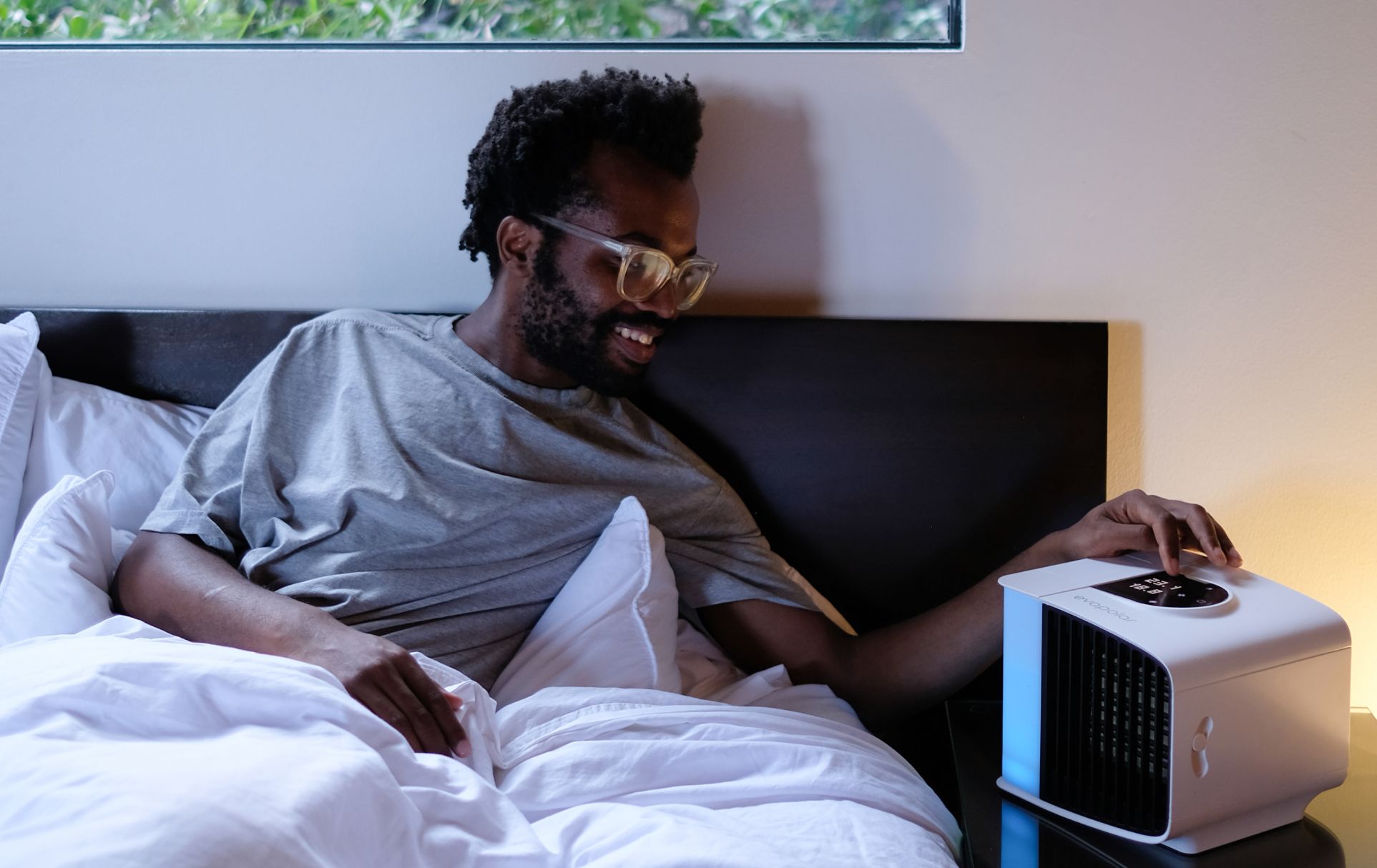
Evapolar is a personal air cooler that uses evaporative cooling — the safest cooling method. This means that it does not use any harmful chemicals or gasses. Evapolar devices are easy to use and maintain.
All the Evapolar models come without easily removable parts or sharp edges. Additionally, they produce no noise and require no installation — simply place it on a flat surface and enjoy cool, refreshing air!
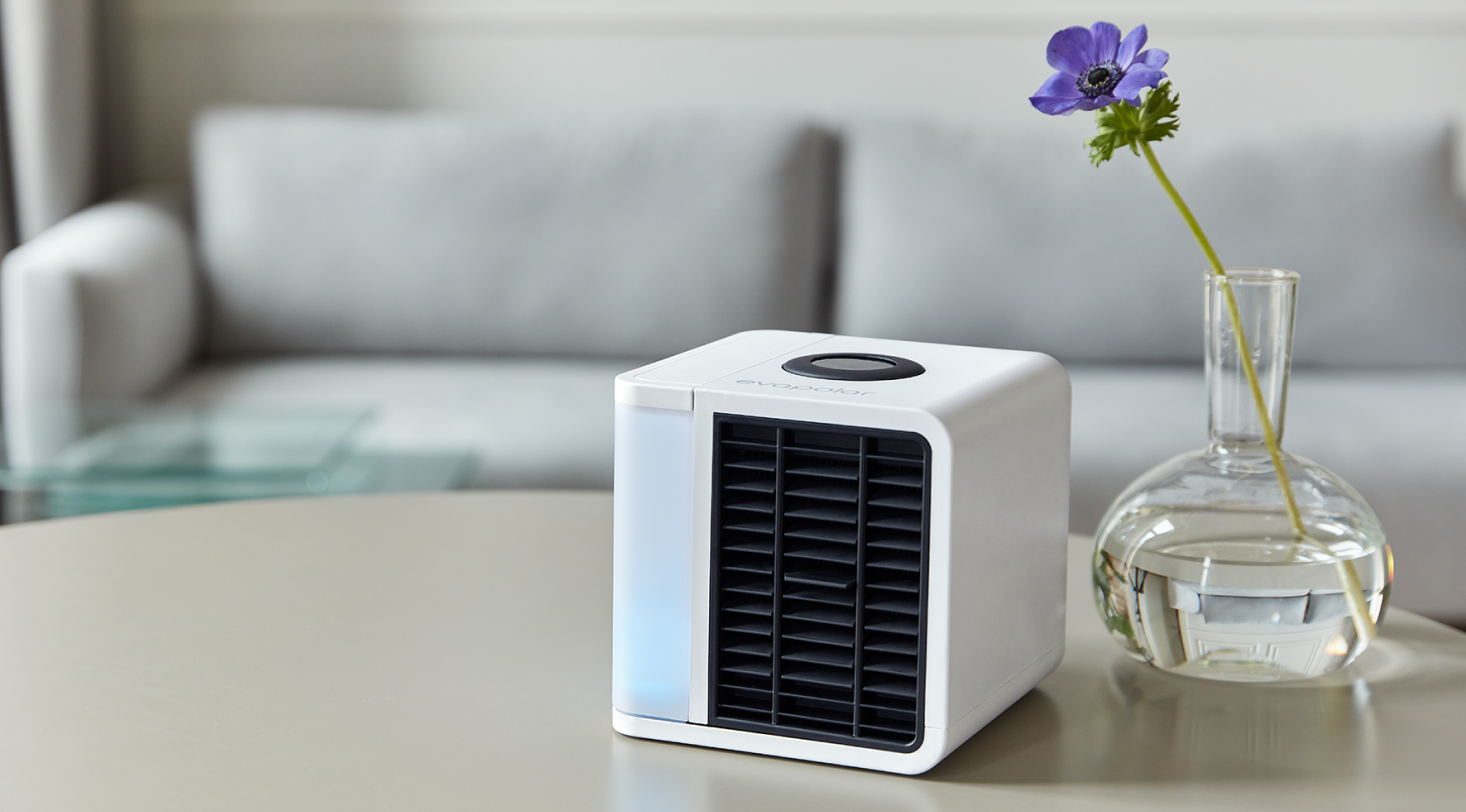
Here are some more benefits of Evapolar air coolers:
- Effective for personal cooling. Placed nearby, it will create a pleasant and humid breeze for you. The maximum difference between the in/out temperatures is 10-12°C (18-19°F) — just like you’re on a sea beach!
- 3-in-1 portable device. Evapolar not only cools you but also humidifies the air in the place and purifies it from large dust particles. It's not a full replacement for purifiers and humidifiers, but it gives more than just cool air, unlike an AC that dries out the air, as far as you know. So, you don’t have to worry about having a runny nose or dry skin because of an air conditioner: Evapolar leaves you with clear and humidified air.
- Safe for your health. Basalt nano-fibers inside the device’s absorbing cartridge were scientifically developed as mold- and bacteria-resistant. Moreover, no other material can boast such outstanding evaporative properties, and the evaporation rate directly affects the coolness you feel when using an air cooler!
- Eco-friendly and energy-efficient. It doesn’t use Freon as AC units do, which is only relatively safe for you and the environment. Evapolar units consume only 10-12W, which is not more than a LED bulb. Together with an affordable price, it makes Evapolar a great alternative or an extremely beneficial companion to air conditioners.
Portable air conditioners are a convenient way to cool your home during the summer. However, following the safety tips above is vital to avoid any dangers. Additionally, maintain the unit regularly and replace any parts when needed. A clean and well-maintained portable air conditioner will serve you safely for many summers!
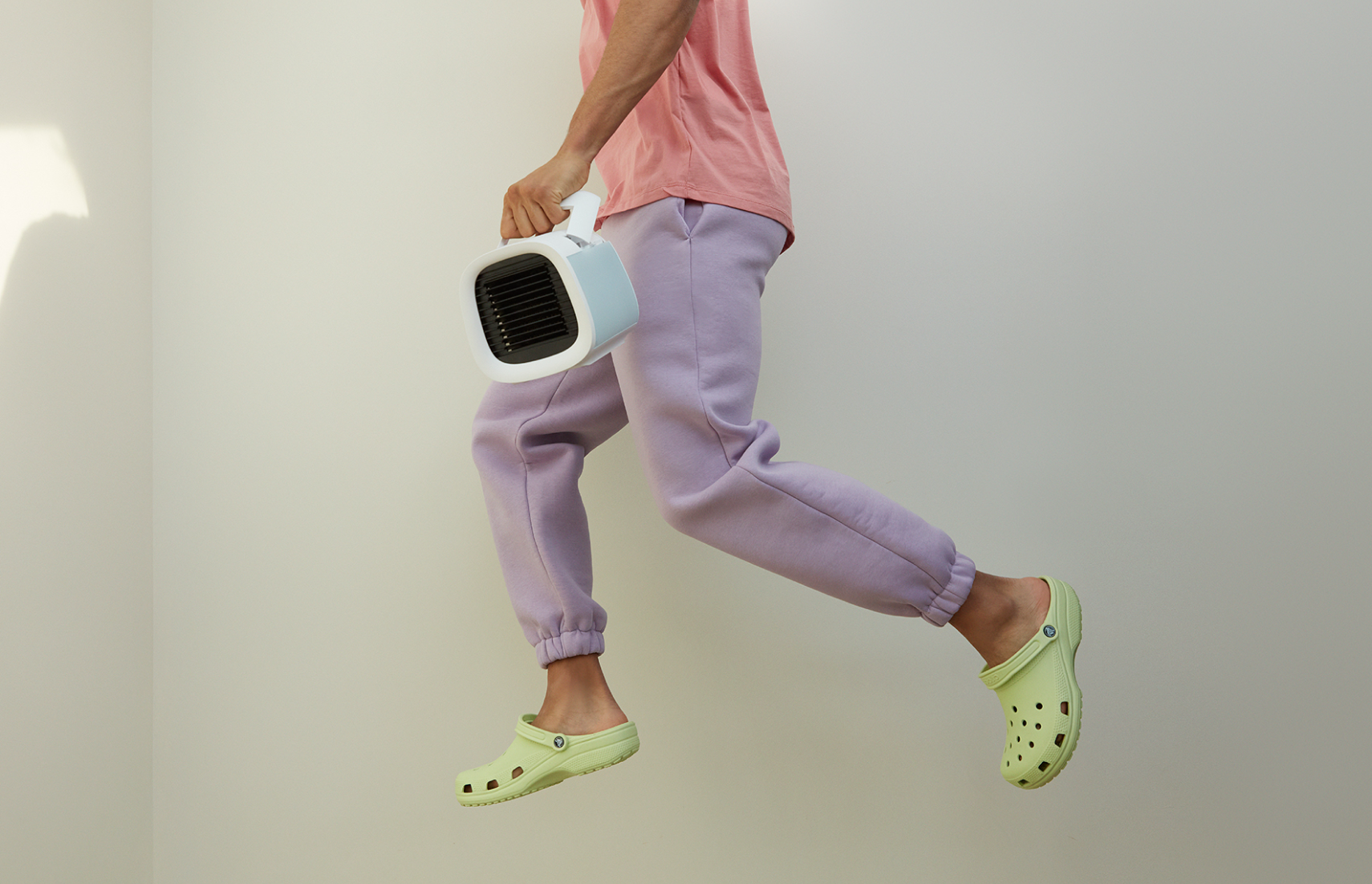
If you are looking for the most simple, efficient, and affordable cooling option which is safe for you, your loved ones, and the environment, you can't go wrong with an evaporative air cooler by Evapolar.
Happy cooling!
FAQ (People Also Ask):
Can a portable air conditioner catch fire?
Portable air conditioners cannot catch fire on their own if you follow all the instructions. However, following the safety tips listed above is important to avoid any dangers. These are still electrical devices that must be operated with care.
Is it safe to use a portable air conditioner in a bedroom?
Yes, it is safe to use a portable air conditioner in a bedroom. Make sure you pick the right temperature to avoid the dreaded AC flu!
Where should a portable air conditioner be placed?
You should place the air conditioner where it will not block a fire escape. Additionally, make sure that the unit is properly ventilated.
Is it OK to cover vents on a portable air conditioner?
No, it is not OK to cover vents on a portable air conditioner — it is very dangerous. Any instruction will tell you not to cover the vents.
Can portable air conditioners release volatile organic compounds?
No, portable air conditioners cannot release VOCs.
Is it safe to leave a portable air conditioner on all day?
Yes, it is safe to leave a portable air conditioner on all day when it comes to functioning. However, you need to adjust the temperature to avoid the cold.
How do I clean my portable air conditioner?
To clean your portable air conditioner, unplug the unit and remove any detachable parts. Wipe down the unit with a damp cloth and soapy water. Rinse with clean water and dry thoroughly before putting the unit back together. It is also a good idea to vacuum the coils monthly to prevent dust buildup.
What happens when a portable AC overheats?
If a portable air conditioner overheats, it will automatically shut off. This is a safety feature to prevent the unit from catching fire. If your unit keeps shutting off, ensure it is properly ventilated and clean the filters. You may also need to replace the coils.
Do all portable air conditioners need to be vented out a window?
Yes! They come with an exhaust hose for a reason. To create cold air inside, they must exhaust the hot air outside.


